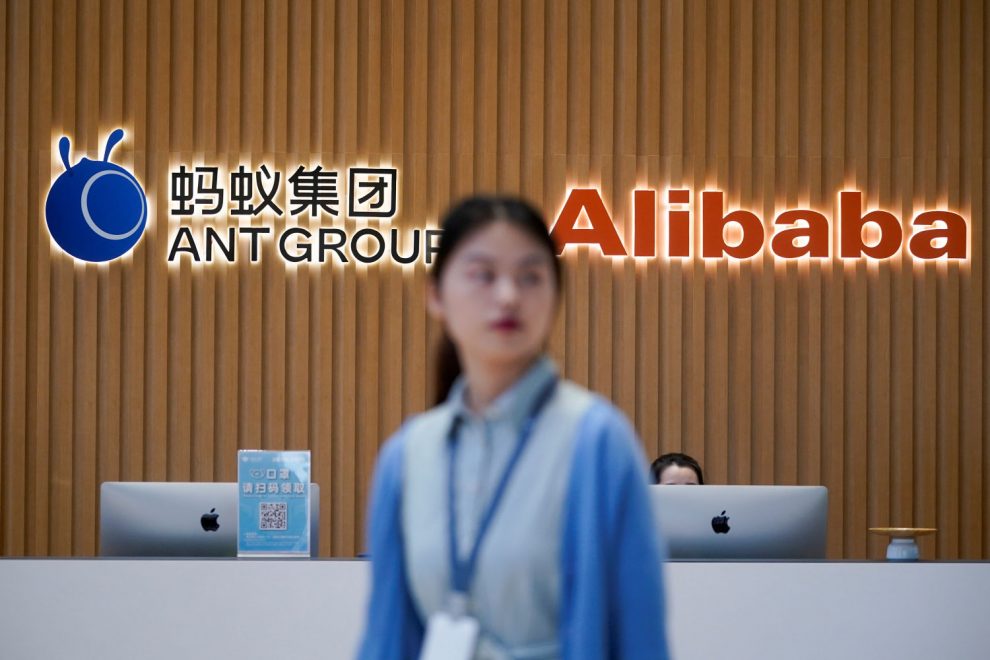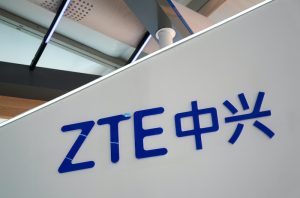China’s central bank has ordered Ant Group to reorganise itself as a financial holding company, in a sweeping crackdown on Jack Ma’s Ant Group, the fintech conglomerate that has spent months in the regulatory doghouse.
The overhaul – which subjects Ant to tougher regulatory oversight and capital requirements – is expected to curb its profitability and valuation by curtailing some of its freewheeling businesses.
Under the restructuring, Ant will split its payment platform from its financial products. Currently, only 36% of revenues are derived from its payment services, with the remainder coming from digital finance.
The People’s Bank of China (PBoC) directive comes two days after Ma’s Alibaba Group Holding, of which Ant is an affiliate, was hit with a record $2.75 billion antitrust penalty as China tightens controls on the booming “platform economy”.
In a statement, the PBoC said that while tech companies had broadened and modernised China’s financial services, it had also brought new regulatory challenges.
“In recent years, the rapid development of financial technology and platform economy has played an important role in improving the efficiency of financial services and the inclusiveness of the financial system, as well as reducing transaction costs,” the bank said.
“At the same time, due to its characteristics of cross-border, mixed-industry, and cross-regional operation, the risk speed is faster, the spread is wider, and the negative spillover effect is stronger. It poses new challenges to financial supervision.”
MONTHS IN THE WORKS
Ant’s public regulatory woes began in November 2020, when its $37 billion initial public offering (IPO) was derailed by regulators, underscoring Beijing’s determination to rein in its internet giants.
The move had reportedly been in the works for months, unknown to Ant, according to Chinese media.
The PBoC highlighted five “rectifications” – areas where Ant Group needs to reform its business to meet regulatory satisfaction:
• (1) set up a financial holding company with all the financial activities being monitored and regulated, as well as implementing solid risk management measures;
• (2) provide different choices of payment methods and make necessary adjustments about the improper linkages between payment service Alipay and credit products Jiebei and Huabei;
• (3) Comply with requirements for consumer credit data protection;
• (4) strengthen corporate governance and rectify issues with activities across lending, wealth management and insurance.
• (5) reduce the scale of Yu’ebao money market fund.
These moves are part of regulators’ attempts to bring more visibility to the payments business, analysts say. “We expect [this will lead to] more choices offered on payment options,” Thomas Chong, an equity analyst at Jefferies in Hong Kong, said.
“We expect that rectifications can foster long-term sector developments with a multitude of players to drive industry growth,” he added.
Hong Kong-listed shares of Alibaba rose 3.3% in mid-morning trading on Tuesday to HK$240. New York-listed shares of the e-commerce giant rose 8% after Monday’s announcement as investors cheered the end of uncertainty after the antitrust fine.
LARGEST FUNDRAISING
Ant, based in the eastern city of Hangzhou, was positioned as a tech firm in 2018 when it raised $14 billion at a valuation of about $150 billion in the world’s largest single fundraising. At its planned IPO pricing late last year, that soared to about $315 billion.
But more recently some global investors valued Ant at more than $200 billion based on its 2020 performance, offering a more sober estimate after the shelving of its IPO and expectations from its forced restructuring.
Now, the regulators’ reach is likely to spread to Ant’s rivals.
“Tencent’s fintech business may be required to establish a financial holding company for its banking, insurance and payment services segments,” Chong said.
Tencent has not confirmed such reports. Its Hong Kong shares traded steadily on Tuesday, rising less than 0.2% to HK$614.50.
Official moves to rein in the internal payment giants are part of a general strategy by Beijing to more closely control technology.
“The biggest theme in China – excluding the new climate policy goals and the focus on social stability – is that of technology regulation,” Peter Garnry, head of equity strategy at Saxo Bank, said.
• George Russell with AFP and Reuters
This page was upgraded on January 21, 2022 for style purposes.
ALSO SEE:
China tightens online lending rules in new blow to Ant Group
Ant Group chief executive quits as regulator scrutiny intensifies
Ant IPO could get back on track if it follows the law: PBoC chief
























